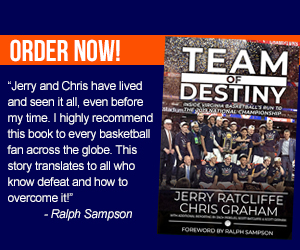Georgia Tech Triple Option Will Test Virginia D
By Jerry Ratcliffe
Virginia’s young defensive line is going to face football’s ultimate test this weekend when they face Georgia Tech’s option offense at Bobby Dodd Stadium in Atlanta.
Going against Tech’s option, when it’s being run as efficiently at it has been over the past month, can be hell, especially for someone who hasn’t played against it before. Four of UVa’s five D-linemen rotation will encounter Paul Johnson’s monster for the first time on Saturday: true freshmen Aaron Faumui and Jordan Redmond, redshirt freshman Tommy Christ, and graduate transfer Dylan Thompson (Ohio State).
What they will see simulated in practice this week doesn’t begin to compare to the real deal.
“Any time you can play against a team with this unique style of offense, then you have a challenge,” said Cavaliers co-defensive coordinator Kelly Poppinga after Tuesday morning’s practice. “We have guys that have experience playing this scheme. We have some guys that need to be caught up, specifically on the defensive line, and a couple of inside backers that haven’t seen it as well.
“It’s getting the other guys caught up and knowing that what you see in practice this week is not going to look close to what you see come Saturday,” Poppinga said.
The one UVa defensive lineman who has seen it, junior Eli Hanback, can tell you first hand just how a defense can be easily devoured by the Yellow Jackets’ option.
“You can only do so much practicing against it,” Hanback said. “The triple option hits fast. Those offensive linemen are expert cut blockers and if you’re off just a little bit, they can score on any play. For me, the first time was a lot more fast paced [than expected] and you have to settle down and get ready for just how fast that option is.”
The option comes at you fast and furious and begins with the dive play. If you can’t stop the dive, you’re done because Johnson will gash you with it every chance he gets.
Remember Navy? UVa was off with its run fits and never got it corrected and was humiliated by the Midshipmen in last December’s Military Bowl.
The dive play is tough enough on its own, but defenders have to worry about fighting off the cut blocks, then making a tackle, all within seconds.
“With their dive, the [line] splits are so wide,” Hanback said, “that it creates that natural space already, and it’s so fast hitting. If you get cut, just in that split second there’s already that much space for the dive to hit fast. That’s the design, to spread the defense out and create holes for the option to hit.
“The dive option is faster than all the other plays in the option package,” Hanback said.
Georgia Tech is again the No. 1 rushing offense in the nation. The Yellow Jackets are averaging 362.4 yards per game _ the most ever by a Johnson offense _ and have already compiled 3,624 yards rushing and 43 rushing touchdowns in 10 games.
Just to show the contrast, Virginia is averaging 175 yards rushing per game, and has rushed for 2,031 yards and 16 TDs after 10 games.
Tech rarely throws it because it simply doesn’t have to, and Johnson prefers not to. He reasons, why waste a down on the chance of an incomplete pass and put his offense in a possible second- or third-and-long situation.
The late Woody Hayes used to have a similar philosophy that football writers described as three yards and a cloud of dust. Hayes reasoned, why throw the football? Only three things can happen and two of those are bad.
Mention triple option to most Wahoos fans and they instantly change the subject, just as if you brought up last March on the basketball court. The Military Bowl experience is something they’d all like to forget, but can’t erase it from memory.
Virginia coach Bronco Mendenhall, who has had mostly success against the option, including beating Georgia Tech at Scott Stadium last November, said he looks forward to the challenge.
But what about the Navy thing?
After all, Navy’s coaches learned everything they know about the option by none other than Paul Johnson.
“There was really a valuable takeaway [from Navy],” Mendenhall said. “I love playing option football just because, the way I frame it to my team it’s an occasion to rise to. It’s a challenge. It stresses you in about every way. That’s where growth happens, not only for individuals but teams.
“So, yeah, the Navy game helped us in so many ways,” Mendenhall said. “Their version, even though Kenny Niumatalolo is a Paul Johnson protege and understudy, doesn’t mean the schemes were identical.”
Virginia couldn’t stop Navy’s running attack all day long and was physically dominated.
Mendenhall said that why part of the lopsided defeat was scheme, some of the blame had to fall on mindset, that Virginia, making its first bowl appearance since 2011, was just happy to be there.
Playing defense against the option is one thing. Keeping pace with it offensively is yet another. Because the option is designed to eat the clock, there are less possessions in a game, and thusly more pressure on the offense to score with limited opportunities.
“When you play an option team you certainly have to score,” Mendenhall confirmed. “It’s better if you’re able to maintain possession of the ball and score. One of the biggest contributing factors for [the Navy game] was our inability to hold onto the ball, to move it with any effectiveness, time of possession and points.”
Getting ahead and staying ahead of an option team works against the option team, which is generally viewed as not so good in coming from behind.
Of course, that depends on whether the defense does its job properly.
“Film study becomes a huge part of it and then execution, discipline and really playing hard,” Poppinga said. “You’ve got to play really, really hard at a high level to give yourself a chance.”








